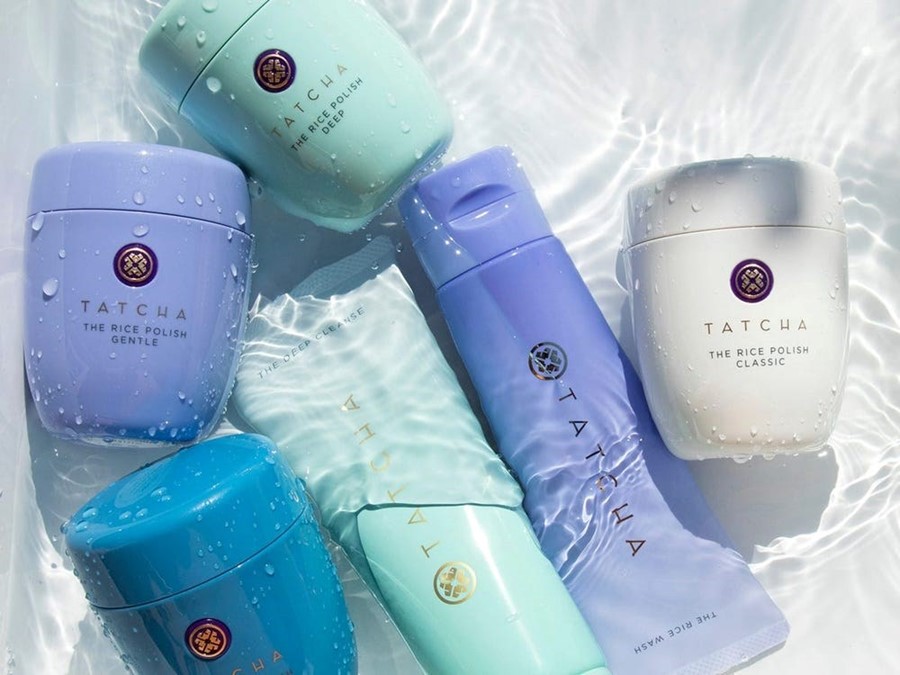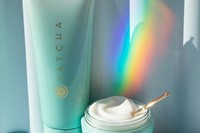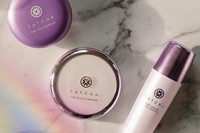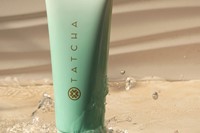Forest-bathing, self-compassion and eating with the seasons: Tatcha founder Vicky Tsai shares the most invaluable lessons she’s learned so far in her career
Tatcha founder Vicky Tsai wasn’t always an expert on skin. After spending the majority of her twenties as a trader on Wall Street, she entered her thirties feeling sickly and disillusioned. The stress of being immersed in the chaotic heart of corporate America had burned her out, and her skin was paying the price. “I had acute dermatitis,” she remembers of the time. “My face was bleeding, blistering and scaling for three years, including on my lips and my eyelids. It was pretty bad.“ After seeing a variety of different US specialists, she was put on daily steroids and antibiotics – but the issue persisted. “I felt really empty inside ... it was a very low moment.”
Despite over a decade in her chosen career, Tsai decided to radically change her lifestyle. She quit her job and, while figuring out her next steps, went travelling, eventually landing in Japan – a place that almost immediately “felt like home”. While there, she began to learn about traditional Japanese skincare techniques, experimenting with natural geisha-approved ingredients (including lavender, green tea and seaweed). The results were transformative. After years of struggling with western treatments, her dermatitis began to heal: the inflammations settled, the dry patches disappeared, and the bleeding stopped.
From there, Tatcha was born. Tsai returned to America to launch the skincare company in 2009, determined to share her life-altering discoveries with a global audience. After selling her engagement ring to raise funds, she carefully began creating her own range of meticulously-researched, Japanese-inspired products; from camellia oil cleansers and rice-based exfoliators, to gold-flecked Aburatorigami blotting papers. Over ten years on, and Tatcha has become one of the fastest-growing beauty companies in America. “We study all over Japan with geishas, monks, farmers, you name it,” Tsai says today. “We take what we learn, and then go over to Tokyo where we have our own scientists and our own lab. We create our own formula from scratch like a Couture dress. We source the ingredient ourselves, we grow it ourselves, we extract it ourselves. Everything is made in Japan.”
But the brand is about much more than clear skin cultivation. Tsai speaks with enthusiasm about her product’s high-performance wonder ingredients – she reels off fascinating, science-led facts at a million miles a minute – but she also talks about lifestyle and the importance of ritual (the brand promotes “five-sense rituals”, which incorporate sound, touch, taste, sight, sight and smell - the most recent being their Indigo calming ritual). Beauty is about much more than aesthetics, after all, and Tatcha’s goal is the pursuit of inner peace. “In Japan, they have deeply grounded wellbeing practices, and I think that is actually the key to their longevity,” the entrepreneur says. “Their core belief is that the key to health and happiness is harmony ... When you take care of your skin, you’re taking care of your mind and vice versa. Everything’s connected.” Here, Tsai expands on some of this wisdom, and shares some of the most invaluable secrets she’s learned so far.
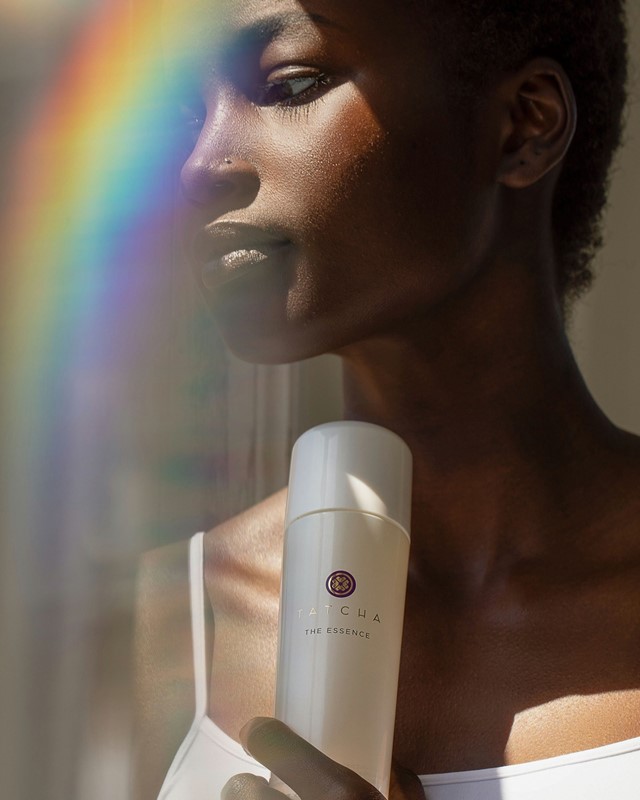
Spend time in nature
“When the pandemic happened I ran off to the mountains, to rural Wyoming. I certainly never cared to live in a small mountain town in a red state, but here I am. I just felt that it was a place that I would need to go to heal.
“The Japanese government have invested millions of dollars into the health benefits of nature exposure. Their religion [Shinto] posits that there is energy in everything, and they are a forest civilisation that have historically lived in nature. When they started developing and moving to cities, that’s when people started getting sick and dying [from overwork] at their desks. Their hypothesis at the time was that people are dying because they’re disconnected from nature. The government did tests, and found that that [a walk through the forest causes] a cascade of biochemical reactions in our body, which end up resetting our nervous and immune systems.
If you can’t get out in nature, just looking outside at the sky will help. Get close to trees, particularly evergreen trees, as they put out the most [compounds] that cause [positive] biochemical reactions in your body.”
Eat with the seasons
“I thought the longevity and the health of the Japanese people was remarkable compared to the people that I grew up with in the US, and when I worked in Wall Street on the trading floor. It’s not just about stress, because Japanese people live hard: they work far longer hours than I think even their American counterparts. But there’s a lot of science that indicates that the diet has a really big part to do with their long lives, because they eat with the seasons. They’re constantly eating things that are most nutritionally dense at the time they’re being harvested.
“Teas are also a really beneficial way to get a lot of calming ingredients into your body, whether that’s camomile or green tea.”
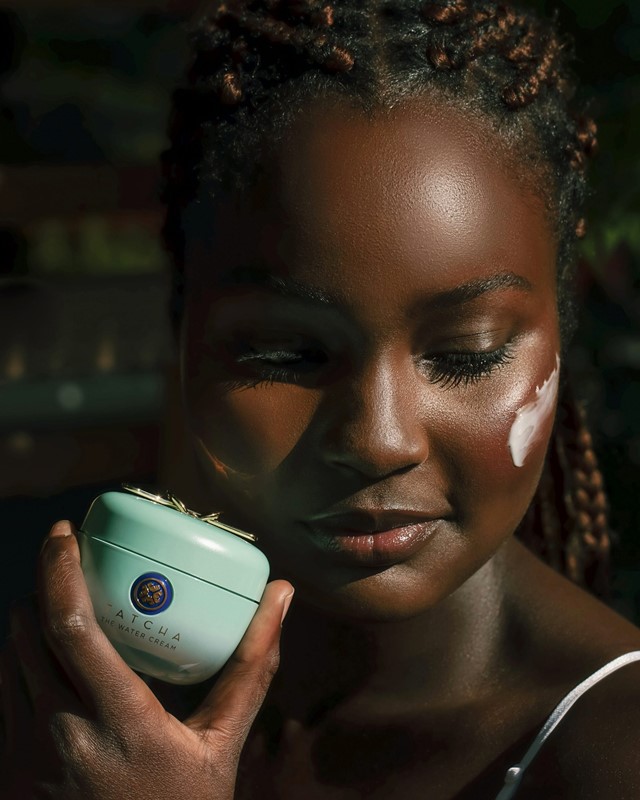
Take care of your gut
“There’s a lot of research coming out about trauma in the body. We used to think the chemicals that made us happy and relaxed came from our brain – endorphins, oxytocin – but now we’re starting to realise they come from the gut, and the skin as well. Now people are starting to talk about gut health as being important for mental health. Your skin, too, is your largest sensory organ, so the way that you’re feeling will be immediately reflected in it.”
Practice self-compassion
“I have a tendency to rush through stuff. But with my skincare routine I actually really take the time to practice self-compassion. In Japan, they believe that washing your face is an act of letting go, so while I’m washing mine I think about the things that I want to let go of that are not of service to me – anxiety, fear, whatever – and I imagine them washing away down the sink. My next step is exfoliation, which is all about taking off the dead and bringing in the new. As a recovering perfectionist, I think about all the things that I didn’t do perfectly enough that day, and I remind myself that I can always begin again.
The third step for me is the essence, which replenishes the skin’s hydration. So I think about replenishing myself, because as women we tend to just give to the point where there’s nothing left – I think that’s the source of burnout for a lot of women like me. And then the last step is moisturising, which gives your skin a protective barrier. When I apply my moisturiser, and I’m massaging it under my skin, I try to think about the people who support me and give thanks to the fact that they exist in my life. By the time I’m done with this ritual – which takes me three minutes at most – I’m ready to go on with my day.”
